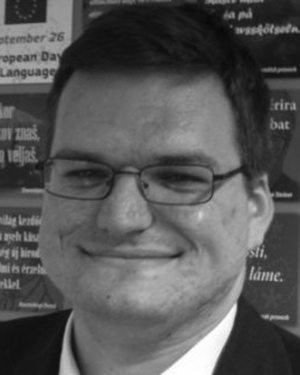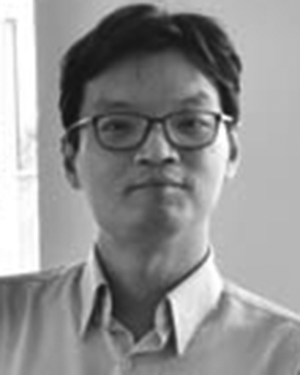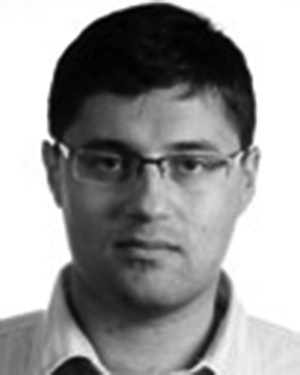Abstract:
The paper provides a high-level review of the current state of techno-pedagogical design in Augmented Reality Learning Experiences (ARLEs). The review is based on a rubri...Show MoreMetadata
Abstract:
The paper provides a high-level review of the current state of techno-pedagogical design in Augmented Reality Learning Experiences (ARLEs). The review is based on a rubric constructed from the Meaningful Learning with ICT framework and the Orchestration Load reduction framework, providing, respectively, a view of primarily student- and primarily teacher-focused dimensions in ARLEs. Fifty-nine ARLEs are reviewed based on an extensive search for papers based on both previous work in the field as well as academic databases. Exemplars for specific situations are provided as well as a correlation analysis between dimensions and an overall view of the maturity of the field in terms of relevant techno-pedagogical considerations, giving ARLE practitioners practical information on the current state of the field as well as assistance in better positioning their future ARLE design efforts.
Published in: IEEE Transactions on Learning Technologies ( Volume: 10, Issue: 4, 01 Oct.-Dec. 2017)
Funding Agency:

Directorate-General for Innovation and Technological Support of the European Parliament, Plateau de Kirchberg, Luxembourg
The University of Zagreb Faculty of Electrical Engineering and Computing, Zagreb, Croatia
Neven Drljević received the BSc degree in computing from the
University of Zagreb Faculty of Electrical Engineering and Computing (FER), in 2011 and the MSc degree in computing
from the University of Zagreb Faculty of Electrical Engineering and Computing (FER), in 2013. He is a European
official working as a project leader at the Directorate-General for Innovation and Technological Support of the
European Parliament. ...Show More
Neven Drljević received the BSc degree in computing from the
University of Zagreb Faculty of Electrical Engineering and Computing (FER), in 2011 and the MSc degree in computing
from the University of Zagreb Faculty of Electrical Engineering and Computing (FER), in 2013. He is a European
official working as a project leader at the Directorate-General for Innovation and Technological Support of the
European Parliament. ...View more

National Institute of Education, Nanyang Technological University, Singapore
Lung Hsiang Wong received the PhD degree from the Nanyang
Technological University, Singapore, in 1998. He is working as a research scientist at the Learning Sciences
Laboratory, National Institute of Education, Nanyang Technological University, Singapore. His research interests
include mobile learning and seamless learning, ICT in Chinese Language learning, Computer-Supported Collaborative
Learning (CSCL), and in-ser...Show More
Lung Hsiang Wong received the PhD degree from the Nanyang
Technological University, Singapore, in 1998. He is working as a research scientist at the Learning Sciences
Laboratory, National Institute of Education, Nanyang Technological University, Singapore. His research interests
include mobile learning and seamless learning, ICT in Chinese Language learning, Computer-Supported Collaborative
Learning (CSCL), and in-ser...View more

University of Zagreb Faculty of Electrical Engineering and Computing, Zagreb, Croatia
Ivica Botički received PhD degree from the University of
Zagreb Faculty of Electrical Engineering and Computing (FER), in 2009. He is an assistant professor with the
University of Zagreb Faculty of Electrical Engineering and Computing. He completed his postdoc at the Learning
Sciences Laboratory at the National Institute of Education, Nanyang Technological University in Singapore. At FER, he
teaches courses at the und...Show More
Ivica Botički received PhD degree from the University of
Zagreb Faculty of Electrical Engineering and Computing (FER), in 2009. He is an assistant professor with the
University of Zagreb Faculty of Electrical Engineering and Computing. He completed his postdoc at the Learning
Sciences Laboratory at the National Institute of Education, Nanyang Technological University in Singapore. At FER, he
teaches courses at the und...View more

Directorate-General for Innovation and Technological Support of the European Parliament, Plateau de Kirchberg, Luxembourg
The University of Zagreb Faculty of Electrical Engineering and Computing, Zagreb, Croatia
Neven Drljević received the BSc degree in computing from the
University of Zagreb Faculty of Electrical Engineering and Computing (FER), in 2011 and the MSc degree in computing
from the University of Zagreb Faculty of Electrical Engineering and Computing (FER), in 2013. He is a European
official working as a project leader at the Directorate-General for Innovation and Technological Support of the
European Parliament. Previously, he worked as a teaching assistant with the Zagreb University of Applied Sciences,
Croatia. He is currently working toward the PhD degree at FER, focusing on exploring the application of augmented
reality in mobile learning in primary school contexts. He received a Best Student Paper award at MIPRO 2013, the
Ericsson Nikola Tesla award in 2012, Best Student Computer Program of FER award in 2012, as well as a Special
Rector's Award in the field of Technical Sciences from the rector of the University of Zagreb in 2012. He has
been a graduate student member of the IEEE Computer Society since 2013 and the IEEE Education Society since 2015. He
is a member of the IEEE.
Neven Drljević received the BSc degree in computing from the
University of Zagreb Faculty of Electrical Engineering and Computing (FER), in 2011 and the MSc degree in computing
from the University of Zagreb Faculty of Electrical Engineering and Computing (FER), in 2013. He is a European
official working as a project leader at the Directorate-General for Innovation and Technological Support of the
European Parliament. Previously, he worked as a teaching assistant with the Zagreb University of Applied Sciences,
Croatia. He is currently working toward the PhD degree at FER, focusing on exploring the application of augmented
reality in mobile learning in primary school contexts. He received a Best Student Paper award at MIPRO 2013, the
Ericsson Nikola Tesla award in 2012, Best Student Computer Program of FER award in 2012, as well as a Special
Rector's Award in the field of Technical Sciences from the rector of the University of Zagreb in 2012. He has
been a graduate student member of the IEEE Computer Society since 2013 and the IEEE Education Society since 2015. He
is a member of the IEEE.View more

National Institute of Education, Nanyang Technological University, Singapore
Lung Hsiang Wong received the PhD degree from the Nanyang
Technological University, Singapore, in 1998. He is working as a research scientist at the Learning Sciences
Laboratory, National Institute of Education, Nanyang Technological University, Singapore. His research interests
include mobile learning and seamless learning, ICT in Chinese Language learning, Computer-Supported Collaborative
Learning (CSCL), and in-service teachers’ professional development. He has published more than 100 papers in
journals, chapters of books, and conferences. He received Best Paper Awards at AI-ED 1995, GCCCE 2009, IEEE WMUTE
2010, mLearn 2011, ICCE 2011, and ICCE 2015. He holds a US patent on “Optimizing Delivery of Computer
Media.” He is the president-elect of the Asia-Pacific Society of Computers in Education. He is an associate
editor of the IEEE Transactions on Learning Technologies and an editorial member of several other
journals.
Lung Hsiang Wong received the PhD degree from the Nanyang
Technological University, Singapore, in 1998. He is working as a research scientist at the Learning Sciences
Laboratory, National Institute of Education, Nanyang Technological University, Singapore. His research interests
include mobile learning and seamless learning, ICT in Chinese Language learning, Computer-Supported Collaborative
Learning (CSCL), and in-service teachers’ professional development. He has published more than 100 papers in
journals, chapters of books, and conferences. He received Best Paper Awards at AI-ED 1995, GCCCE 2009, IEEE WMUTE
2010, mLearn 2011, ICCE 2011, and ICCE 2015. He holds a US patent on “Optimizing Delivery of Computer
Media.” He is the president-elect of the Asia-Pacific Society of Computers in Education. He is an associate
editor of the IEEE Transactions on Learning Technologies and an editorial member of several other
journals.View more

University of Zagreb Faculty of Electrical Engineering and Computing, Zagreb, Croatia
Ivica Botički received PhD degree from the University of
Zagreb Faculty of Electrical Engineering and Computing (FER), in 2009. He is an assistant professor with the
University of Zagreb Faculty of Electrical Engineering and Computing. He completed his postdoc at the Learning
Sciences Laboratory at the National Institute of Education, Nanyang Technological University in Singapore. At FER, he
teaches courses at the undergraduate, graduate, and PhD levels, mentors students at all levels and is engaged in a
variety of research and industry projects, boards, councils, and initiatives. He is a member of the IEEE.
Ivica Botički received PhD degree from the University of
Zagreb Faculty of Electrical Engineering and Computing (FER), in 2009. He is an assistant professor with the
University of Zagreb Faculty of Electrical Engineering and Computing. He completed his postdoc at the Learning
Sciences Laboratory at the National Institute of Education, Nanyang Technological University in Singapore. At FER, he
teaches courses at the undergraduate, graduate, and PhD levels, mentors students at all levels and is engaged in a
variety of research and industry projects, boards, councils, and initiatives. He is a member of the IEEE.View more


